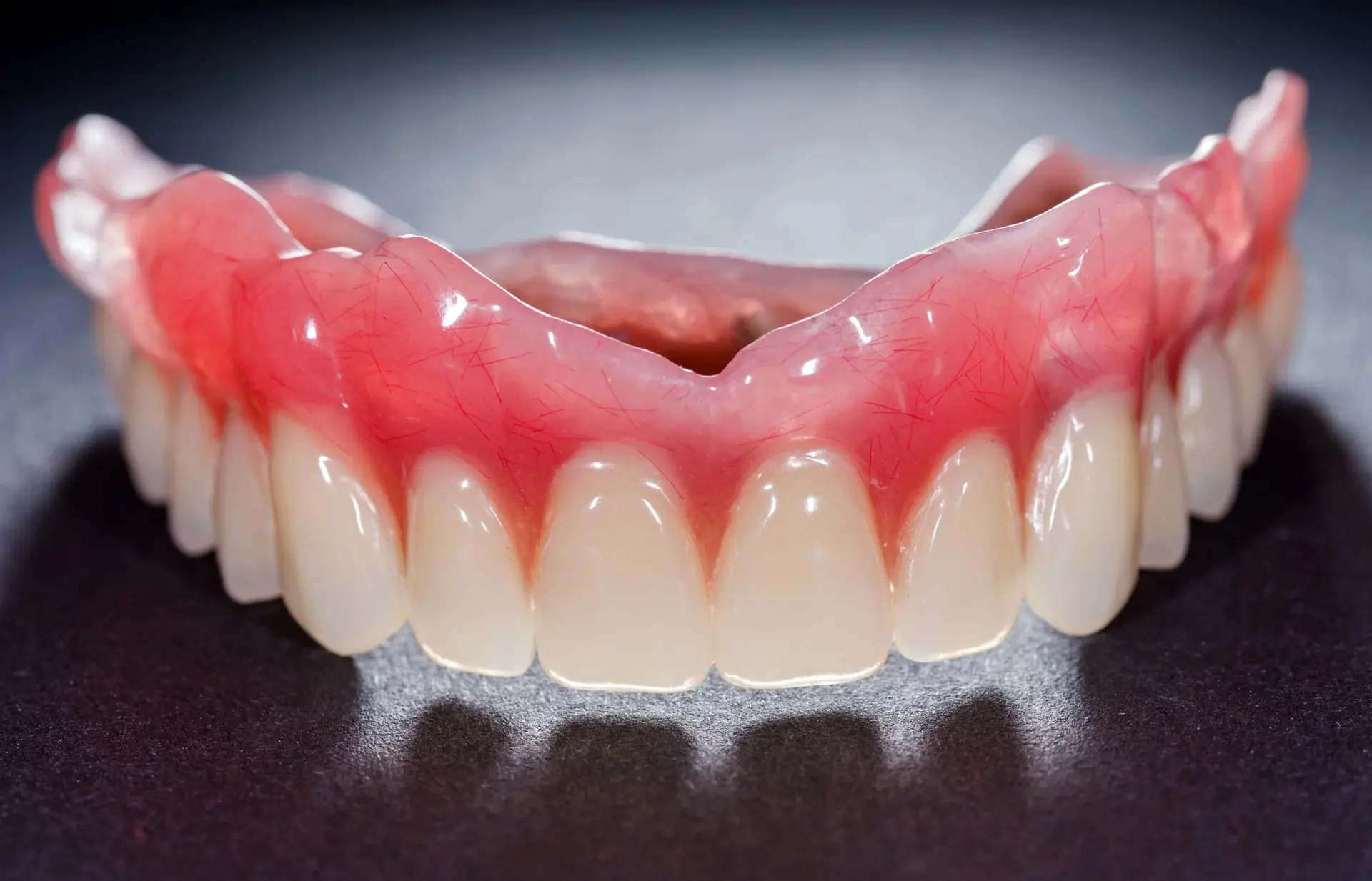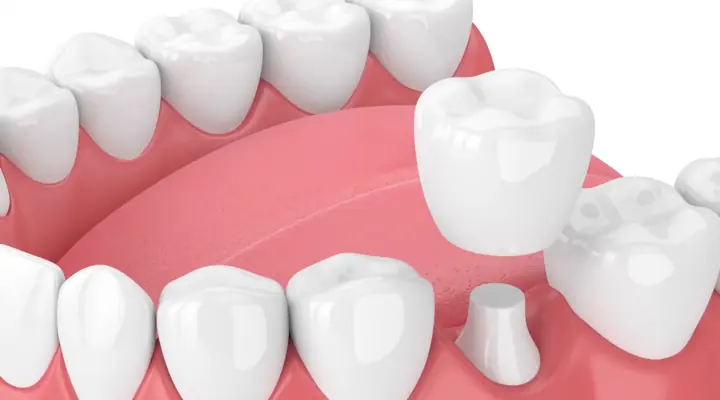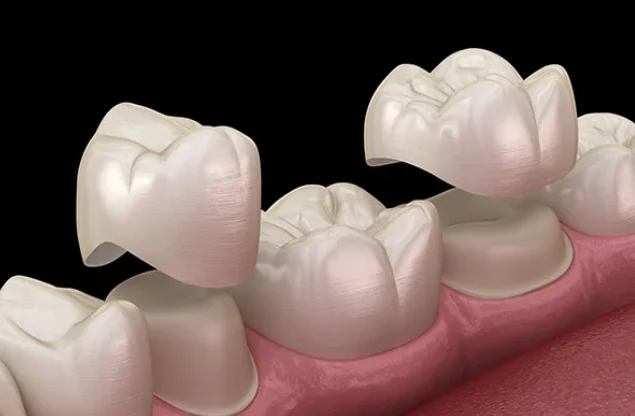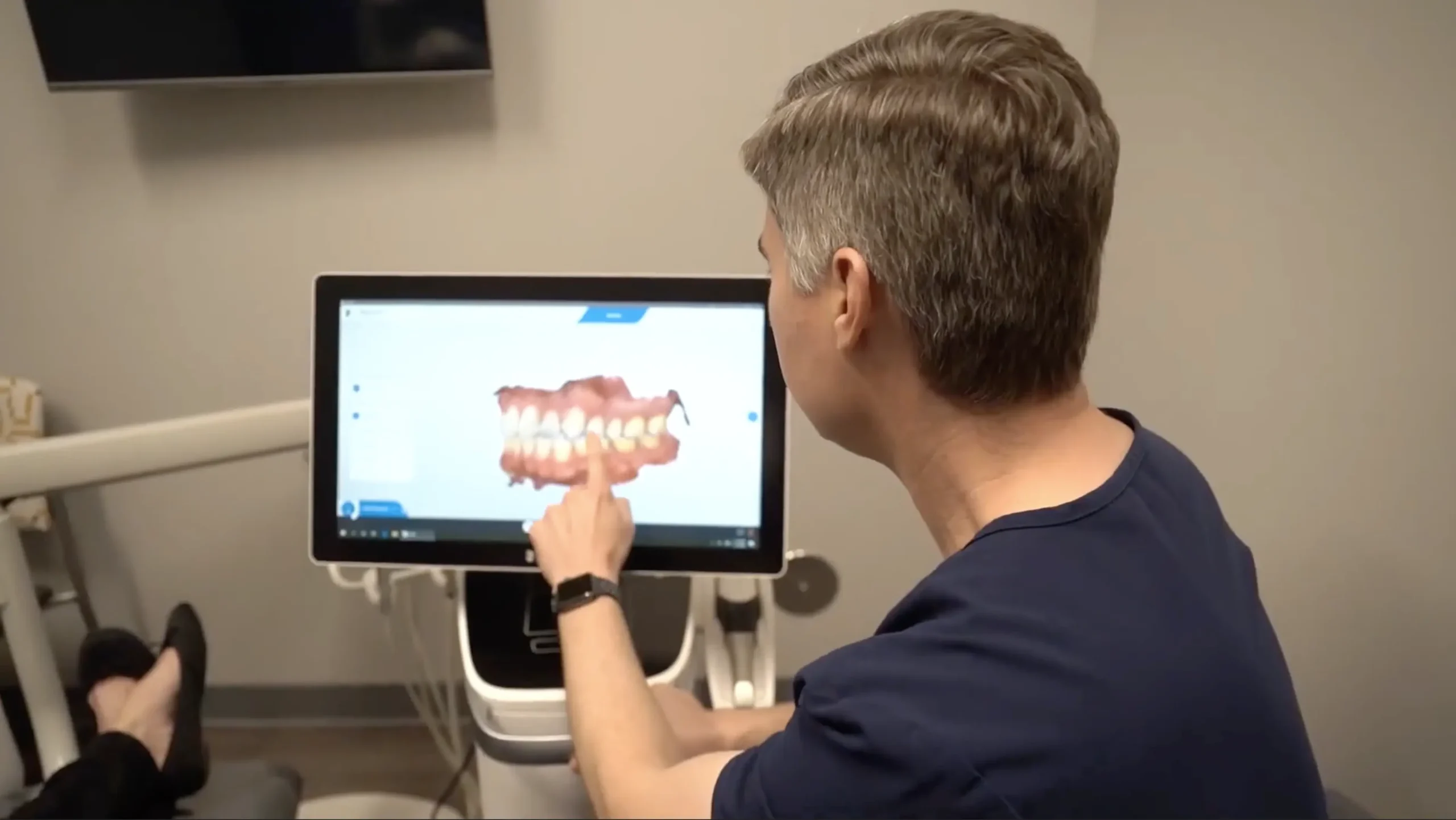Custom Dental Crowns & Bridges in Rock Hill, SC
Restore your smile with natural, long-lasting restorations designed with advanced technology and expert precision.
At River District Smiles, we blend modern dentistry with a personalized approach to give every patient a restoration that feels comfortable, looks natural, and lasts for years. Whether you’re dealing with a damaged tooth or missing teeth, our custom crowns and bridges are crafted to strengthen your bite and elevate your confidence.
Expert Tooth Restoration With Modern Materials and Technology
Dr. Emily Hubis and Dr. Matthew Hubis provide precise, aesthetic-focused restorations backed by years of advanced training. Our office uses digital imaging, 3D scanning technology, and strong ceramic materials to design crowns and bridges that blend seamlessly with your surrounding teeth.
Every restoration is intentionally tailored. From shade matching to anatomical shaping, we ensure your final results look natural, feel comfortable, and function exactly the way a healthy tooth should.

When You May Need a Dental Crown
A crown is often the best solution when a tooth is weakened or cosmetically compromised. Many patients in Rock Hill visit us for crowns when they experience:
- A cracked or fractured tooth
- A tooth worn down from grinding or clenching
- Deep decay that compromises tooth structure
- A tooth that has undergone root canal therapy
- Discoloration or cosmetic concerns that can’t be improved with whitening
A crown covers your tooth like a protective shell, restoring strength, structure, and appearance. Our crowns are designed to withstand everyday chewing while maintaining a natural, lifelike translucency.

1. Digital Scan
We begin with a clean, precise digital scan of your tooth. No uncomfortable impressions or messy molds — just accurate 3D imaging that captures every detail.
2. Custom Design
Your dentist designs your crown based on your bite, tooth shape, and neighboring teeth. We evaluate color, contour, and anatomy to create a restoration that blends naturally with your smile.

3. Same-Day CEREC Milling (When Applicable)
For many patients, we create a crown right here in our office using CEREC technology. This allows us to design, mill, and place your crown in a single visit. For more complex cases requiring specific materials or customization, we partner with trusted dental labs to deliver exceptional precision.
4. Final Placement
Once your crown is ready, we adjust it to ensure proper bite alignment and a comfortable fit. The restoration is then securely bonded to your tooth, instantly restoring function and aesthetics.
Our approach eliminates guesswork, reduces unnecessary appointments, and delivers predictable, high-quality results.

Our Dental Crown Process: Designed for Comfort and Accuracy
What Is a Dental Bridge?
A dental bridge replaces one or more missing teeth by anchoring a durable prosthetic to the teeth or implants on either side of the gap. Bridges restore balance, improve chewing, and prevent surrounding teeth from shifting.
Our bridges are made from the same premium materials used in our crowns, offering natural appearance and long-term strength.
Bridge Options at River District Smiles
Traditional Bridges
Ideal for replacing a single missing tooth or a small span of teeth, traditional bridges anchor to healthy natural teeth.
Implant-Supported Bridges
A strong and modern alternative, implant-supported bridges do not rely on natural teeth for support. This option offers long-term durability and is ideal for patients seeking a more permanent solution.
Maryland Bridges
For select cases, a Maryland bridge provides a conservative approach by using a metal or ceramic wing bonded behind adjacent teeth.
No matter which type of bridge you need, our focus is always on comfort, durability, and creating a natural appearance that complements your smile.
Why Rock Hill Patients Choose River District Smiles for Crowns & Bridges
State-of-the-Art Technology
Digital scanning and CEREC milling allow us to craft restorations with exceptional accuracy and efficiency.
Natural Aesthetics
We design your crown or bridge to match your tooth shade, shape, and contour for a seamless, confident smile.
Long-Lasting Materials
We use high-strength ceramics that resist chipping, staining, and daily wear.
Personalized Care
Every restoration is created with your unique bite and facial aesthetics in mind, ensuring comfort and function.
Local Experience
We routinely treat Rock Hill patients experiencing cracked teeth, wear from grinding, and damage from older restorations. Our experience allows us to recommend solutions that are predictable and long-lasting.
Restore Your Smile With Strength & Precision
If you’re experiencing tooth damage or missing teeth, River District Smiles is here to help. Our modern crown and bridge solutions are designed to restore your smile with comfort, confidence, and long-lasting results.
Book your consultation today and discover a better approach to restorative dentistry in Rock Hill.



